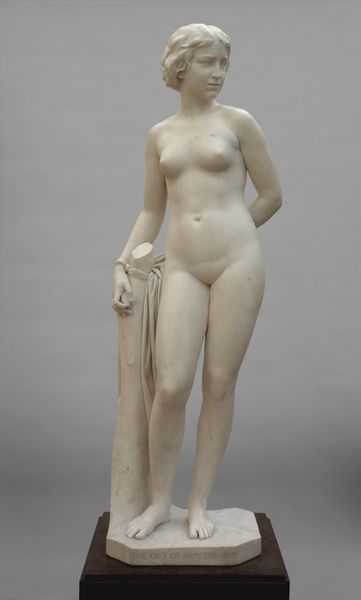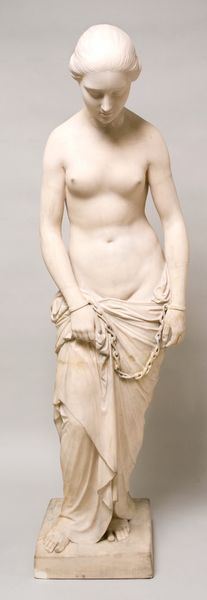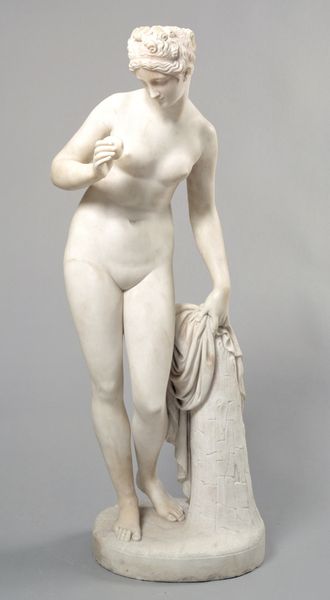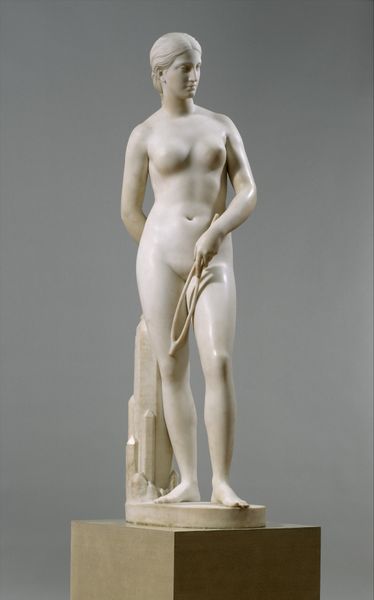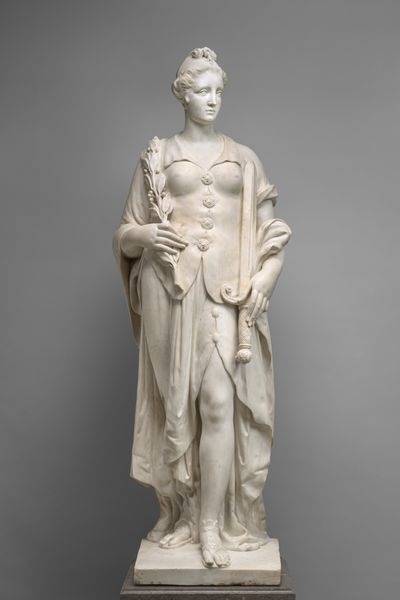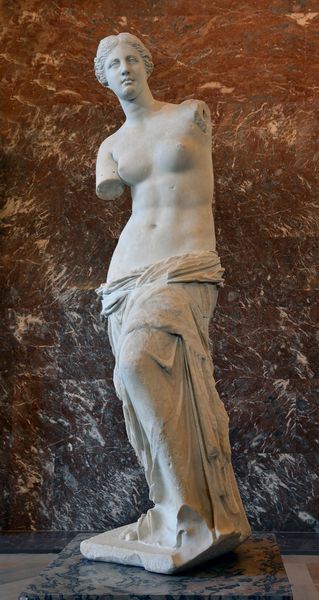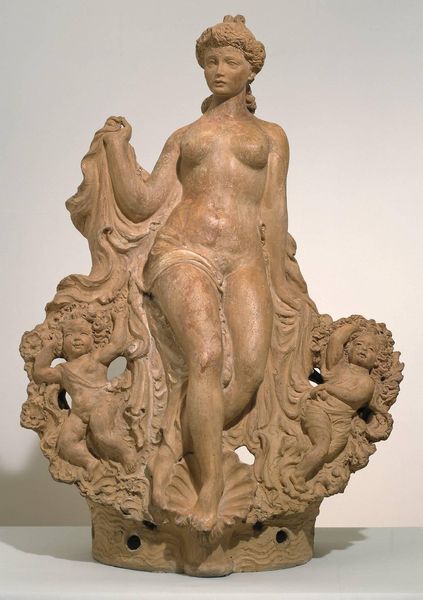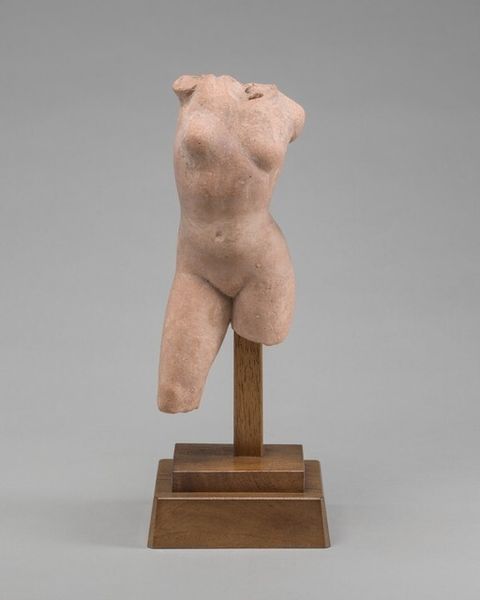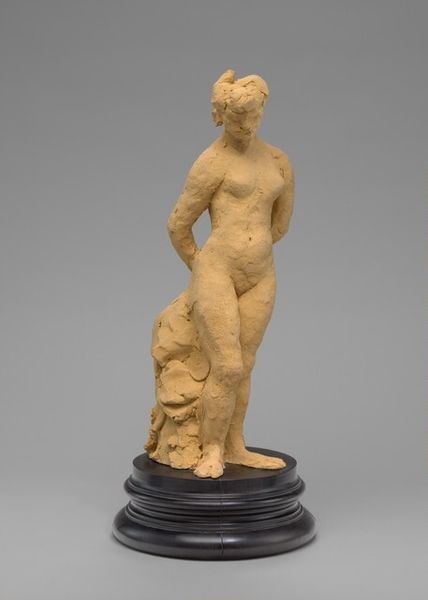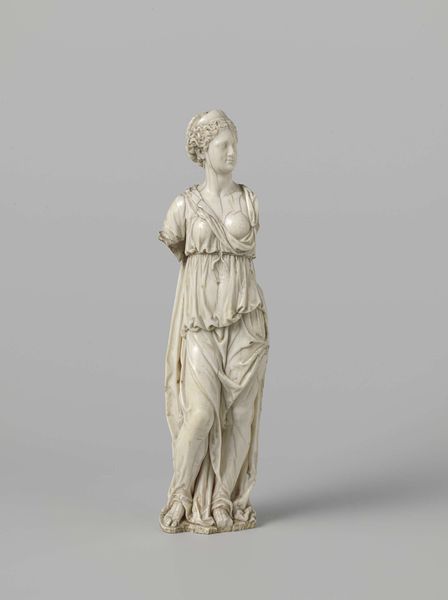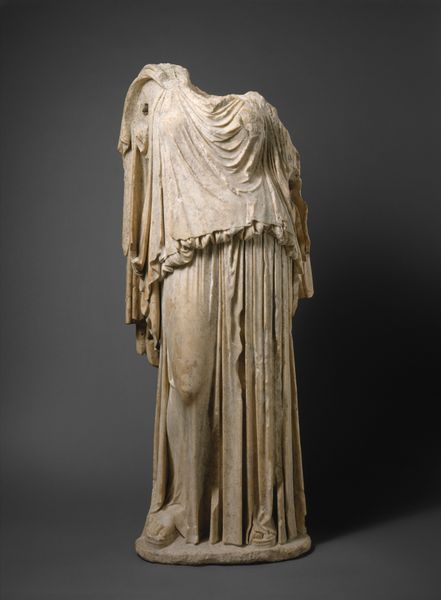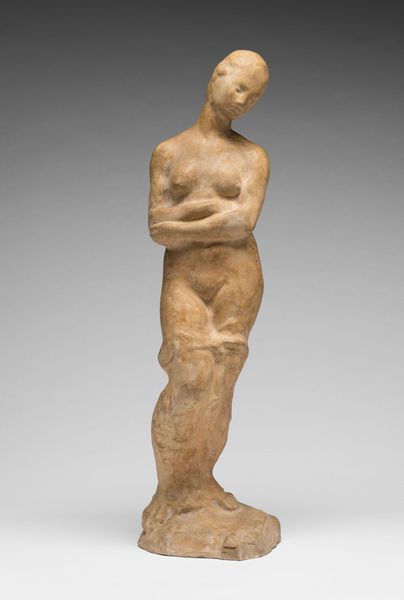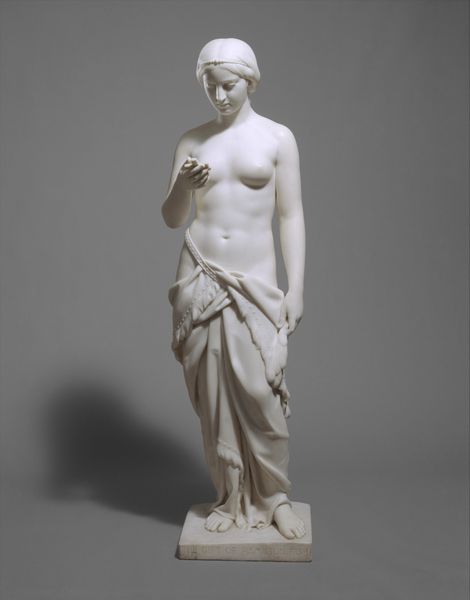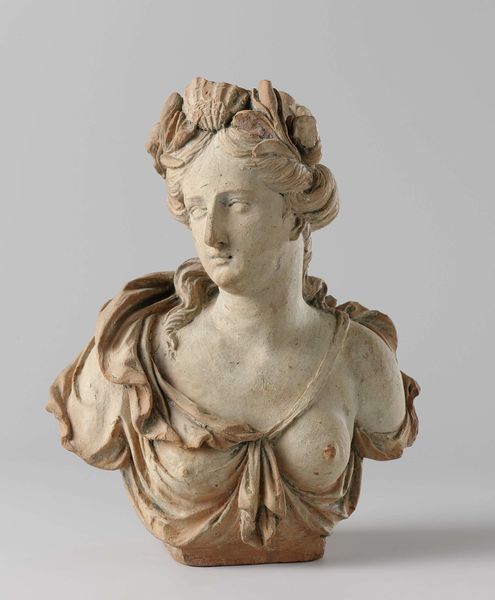
carving, sculpture
#
carving
#
baroque
#
sculpture
#
figuration
#
sculpture
#
nude
Copyright: Rijks Museum: Open Domain
Editor: This terracotta carving, "Weeping and Captive Caryatids: Remorse and Penance," was created by Artus Quellinus around 1650. It's currently housed at the Rijksmuseum. I am struck by her downcast gaze and bound hands; it’s undeniably melancholic. What do you see in this piece, considered within its historical moment? Curator: Beyond the immediate impression of sadness, I see a powerful commentary on the role of women and virtue within the baroque period. Quellinus presents us with a figure burdened, almost architecturally, carrying weight like a caryatid, but one weighed down not only physically but also emotionally, by guilt or perhaps societal expectations. The bound hands and weeping posture speak to limited agency, but why present this in the public sphere? Editor: Are you saying that the presentation and location influence the meaning? Curator: Precisely! The Baroque period saw an increased emphasis on theatricality and emotional display in public art. Was this sculpture meant to be devotional, didactic? The “remorse and penance” point towards morality. I think it might serve to encourage reflection in the viewer, perhaps within a church setting, and certainly reinforce the then-held importance of female repentance. What do you make of her partial nudity juxtaposed with the overall theme? Editor: That's interesting. I had been considering the potential influence of classical sculpture traditions, and this adds a completely different angle to the reading. It's complex! Curator: The classical form indeed plays a crucial role. But it is the specific *use* of that form—within a burgeoning theatrical Baroque and alongside distinct moral messages—that makes it something beyond mere aesthetics. Editor: This discussion has really illuminated how social context can dramatically shift an artwork's meaning for me. I see the Baroque differently now. Curator: And for me, this conversation highlights how important public art can be when shaping cultural understanding. Always more to learn, isn't there?
Comments
rijksmuseum over 2 years ago
⋮
Between the reliefs in the Vierschaar (Tribunal), or court of justice, in the Amsterdam Town Hall, Quellinus placed four female caryatids – weight-bearing sculpted figures – personifying Remorse (with their hands covering their face) and Penance (with bound hands).
Join the conversation
Join millions of artists and users on Artera today and experience the ultimate creative platform.
rijksmuseum over 2 years ago
⋮
Between the reliefs in the Vierschaar (Tribunal), or court of justice, in the Amsterdam Town Hall, Quellinus placed four female caryatids – weight-bearing sculpted figures – personifying Remorse (with their hands covering their face) and Penance (with bound hands).
